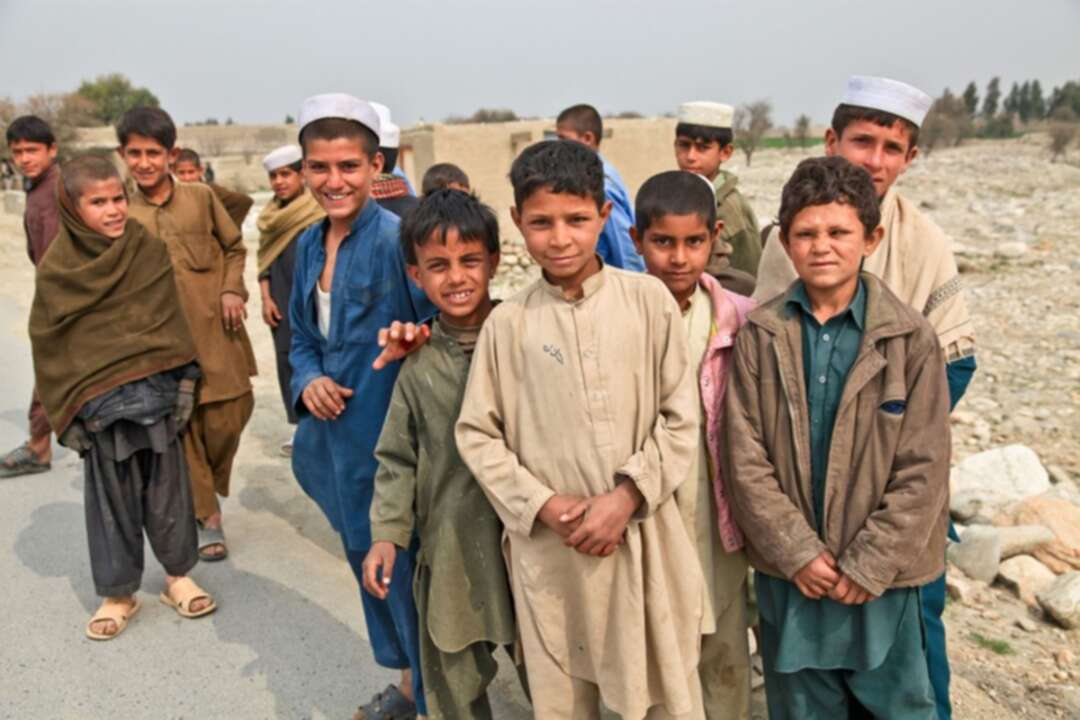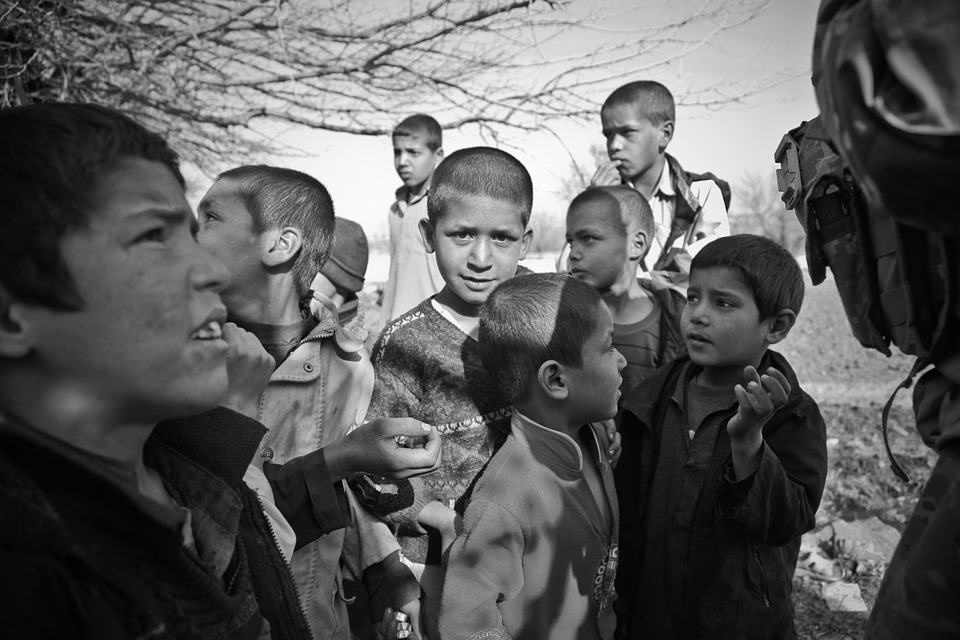-
Over 300 million children who live in conflict zones are at risk of becoming child soldiers

The Asharq Al-Awsat reported, one in eight of the world's children - more than 300 million - live in conflict zones where they are at risk of becoming child soldiers, a charity warned on Tuesday, saying boosting school access was vital in fighting forced recruitment.
The United Nations called for a global ceasefire last year to help fight COVID-19, but armed groups have continued fighting in countries including Afghanistan, the Democratic Republic of Congo, Nigeria and Yemen.
Tuesday's report by charity Save the Children said that during 2020 some 337 million children were living near armed groups and government forces that recruit children.
The report said, nearly 200 million of them live in the world's deadliest war zones, up 20% from 2019.
"It's simply horrifying that in the shadow of COVID-19 and the UN's call for a global ceasefire, more children than ever before are caught in the crosshairs of the deadliest war zones ... and more likely to be injured, recruited or killed," said Inger Ashing, Save the Children International's chief executive.
 Children in Afghanistan/Pixabay
Children in Afghanistan/PixabayThe exact number of child soldiers is unknown, but in 2020 more than 8,500 children were recruited and used as fighters or in other roles by mostly non-state armed groups, according to UN data, a 10% increase from the previous year.
Read more: WHO special session kicks off seeking ‘pandemic treaty’ amid Omicron concerns
The charity's report said, that number is likely to be only a fraction of actual cases.
"Millions of children have known nothing but war with appalling consequences for their mental health, ability to go to school, or access to life-saving services. Ashing added in a statement, this is a stain on the international community."
The forced recruitment of children for use in armed conflict is considered one of the worst forms of child labor, alongside abuses such as trafficking for sexual exploitation, according to the UN International Labor Organization (ILO).
Children are more vulnerable to recruitment as fighters or in roles such as cooks or for sexual exploitation if they are poor or not able to attend school.
According to Save the Children, girls, who made up 15% of UN-reported cases of recruitment in 2020, often act as spies or suicide bombers and are especially at risk of abuse.
The report laid out recommendations for stopping "this war on children" including holding perpetrators of grave violations to account and ensuring access to education to protect children from forced recruitment.
Read more: Australia establishes new platform to combine human and artificial intelligence
UN Special Representative for Children and Armed Conflict Virginia Gamba said earlier this month in a joint statement with the ILO and charity War Child UK that governments must put the needs of children at the center of COVID-19 recovery plans.
She highlighted the need to put in place child reintegration programs and support community-led initiatives and organizations working at the frontline.
But Sandra Olsson, reintegration adviser at War Child UK, which works to help children affected by war, said funding remained a major hurdle.
"Many reintegration programs today only receive funding for 12 months or even less, a period far too short when it comes to building resilience and community action," Olsson said, urging states and donors to "prioritize this critical work."
Source: aawsat
You May Also Like
Popular Posts
Caricature
BENEFIT Sponsors BuildHer...
- April 23, 2025
BENEFIT, the Kingdom’s innovator and leading company in Fintech and electronic financial transactions service, has sponsored the BuildHer CityHack 2025 Hackathon, a two-day event spearheaded by the College of Engineering and Technology at the Royal University for Women (RUW).
Aimed at secondary school students, the event brought together a distinguished group of academic professionals and technology experts to mentor and inspire young participants.
More than 100 high school students from across the Kingdom of Bahrain took part in the hackathon, which featured an intensive programme of training workshops and hands-on sessions. These activities were tailored to enhance participants’ critical thinking, collaborative problem-solving, and team-building capabilities, while also encouraging the development of practical and sustainable solutions to contemporary challenges using modern technological tools.
BENEFIT’s Chief Executive Mr. Abdulwahed AlJanahi, commented: “Our support for this educational hackathon reflects our long-term strategic vision to nurture the talents of emerging national youth and empower the next generation of accomplished female leaders in technology. By fostering creativity and innovation, we aim to contribute meaningfully to Bahrain’s comprehensive development goals and align with the aspirations outlined in the Kingdom’s Vision 2030—an ambition in which BENEFIT plays a central role.”
Professor Riyadh Yousif Hamzah, President of the Royal University for Women, commented: “This initiative reflects our commitment to advancing women in STEM fields. We're cultivating a generation of creative, solution-driven female leaders who will drive national development. Our partnership with BENEFIT exemplifies the powerful synergy between academia and private sector in supporting educational innovation.”
Hanan Abdulla Hasan, Senior Manager, PR & Communication at BENEFIT, said: “We are honoured to collaborate with RUW in supporting this remarkable technology-focused event. It highlights our commitment to social responsibility, and our ongoing efforts to enhance the digital and innovation capabilities of young Bahraini women and foster their ability to harness technological tools in the service of a smarter, more sustainable future.”
For his part, Dr. Humam ElAgha, Acting Dean of the College of Engineering and Technology at the University, said: “BuildHer CityHack 2025 embodies our hands-on approach to education. By tackling real-world problems through creative thinking and sustainable solutions, we're preparing women to thrive in the knowledge economy – a cornerstone of the University's vision.”
opinion
Report
ads
Newsletter
Subscribe to our mailing list to get the new updates!






















